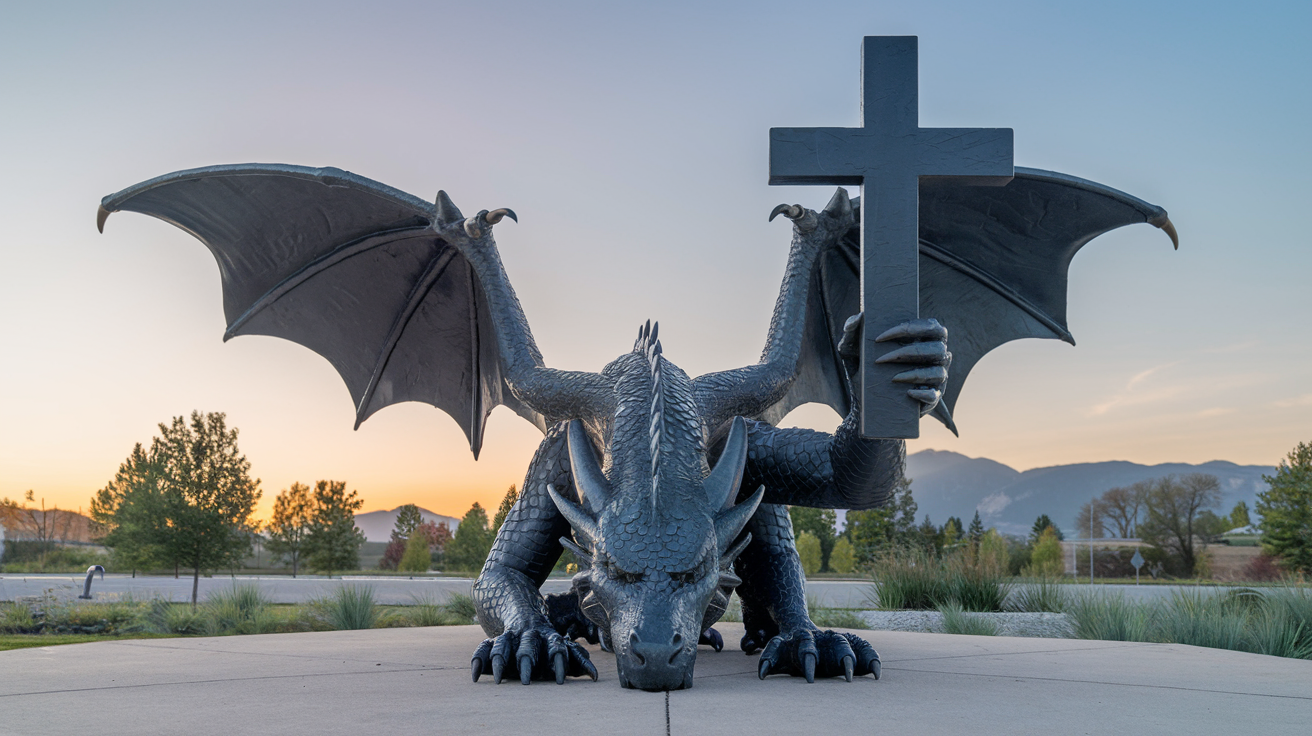The question of whether Christians can own dragon statues is one that intertwines faith, symbolism, and personal belief. Dragons, often depicted as powerful and mythical creatures, have various interpretations across different cultures and religions. For many Christians, the concern revolves around whether owning such a statue aligns with their spiritual values and biblical teachings.
Why Do People Ask This Question?
Christians might question the ownership of dragon statues for several reasons:
- Symbolism of Dragons: In many traditions, dragons are associated with evil or Satanic imagery, leading to concerns about promoting negative symbolism.
- Biblical References: The Bible mentions dragons and similar creatures, which can cause confusion about their representation and meaning.
- Cultural Influence: Modern media often portrays dragons in diverse roles, from villains to heroic figures, blurring the lines of their symbolic meaning.
- Spiritual Impact: Believers may worry that owning a dragon statue could influence their spiritual state or reflect their beliefs inaccurately.
Diverse Perspectives Within Christianity
Christian opinions on owning dragon statues vary widely, influenced by differing interpretations of scripture and theological emphasis:
- Strict Views: Some Christians may view dragons strictly as symbols of evil, referencing passages like Revelation 12:9, which describes a “great dragon” identified as Satan. For them, owning a dragon statue might feel inappropriate or spiritually harmful.
- Moderate Views: Others might see dragons as neutral mythical creatures without inherent evil. They could interpret biblical mentions metaphorically or within historical contexts, allowing for the ownership of dragon statues as decorative or symbolic without negative implications.
- Less-Conservative Views: A more liberal perspective might emphasize personal freedom and the intent behind owning the statue. If the dragon is seen as a cultural or artistic symbol rather than a religious one, it may be considered acceptable.
Biblical Scriptures Relevant to the Discussion
Several Bible passages mention dragons or similar creatures, providing a foundation for various interpretations:
- Revelation 12:9 (NIV):”The great dragon was hurled down—that ancient serpent called the devil, or Satan, who leads the whole world astray.”
- Psalm 74:13-14 (NIV):”It was you who split open the sea by your power; you broke the heads of the monster in the waters. It was you who crushed the heads of Leviathan and gave it as food to the creatures of the desert.”
- Isaiah 27:1 (NIV):”In that day, the Lord will punish with his sword—his fierce, great and powerful sword—Leviathan the gliding serpent, Leviathan the coiling serpent; he will slay the monster of the sea.”
These scriptures often depict dragons or serpent-like creatures as symbols of chaos or evil, which can influence how Christians perceive dragon imagery.
Comparative Table of Creatures Associated with the Devil
| Creature | Biblical Reference | Common Interpretation |
|---|---|---|
| Dragon | Revelation 12:9 | Symbol of Satan or evil |
| Leviathan | Psalm 74:13-14; Isaiah 27:1 | Representation of chaos |
| Serpent | Genesis 3:1-15 | Temptation and deceit |
| Behemoth | Job 40:15-24 | Power and untamable nature |
Final Thoughts: Personal Choice and Spiritual Alignment
Ultimately, whether a Christian chooses to own a dragon statue is a personal decision deeply rooted in how one perceives the relationship between physical objects and spirituality. A dragon statue, in its essence, is merely a representation and not inherently evil. If the statue is not intended to symbolize Satan or malicious forces, many Christians may find no conflict in owning it.
Now, if you were to worship a dragon statue or dragons in general then that is a different story. You can absolutely like dragons but just don’t worship a figure other than God.
Believers are encouraged to reflect on their own moral compass and spiritual beliefs when making such decisions. Considering the symbolic meanings, personal intentions, and biblical teachings can guide individuals in determining whether owning a dragon statue aligns with their faith.
In reality, a dragon statue is just a dragon statue. Since it does not represent Satan or evil, there should be no harm in having one, provided it aligns with your personal beliefs and spiritual values.


